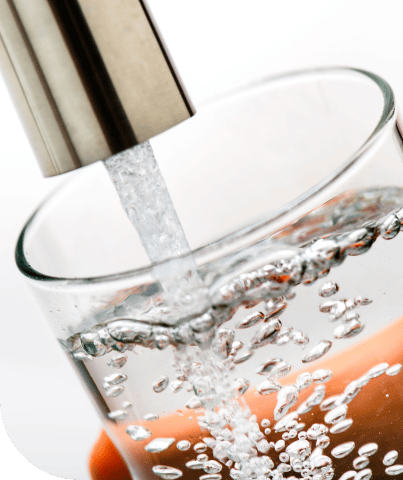Camp Lejeune Water Contamination Lawsuit
Thanks to the Camp Lejeune Justice Act, military personnel and their families living or working at Camp Lejeune between August 1953 and December 1987 that have suffered disabling and deadly illnesses such as cancer, birth defects and neurological disorders are able to pursue justice and compensation through a Camp Lejeune water contamination lawsuit. Contact The Lanier Law Firm at 800-723-3216 for a free case evaluation.

Legally Reviewed By: Michelle Greene
Attorney | Environmental Contamination
- Page Last Updated:
- November 26, 2024

Legally Reviewed By: Michelle Greene
Attorney | Environmental Contamination
- Page Last Updated:
- November 26, 2024
Quick Answers
Military personnel, their families and civilians living and working at Camp Lejeune from August 1, 1953 through December 31, 1987.
The contaminants in the water at Camp Lejeune during this time period have been associated with cancer, birth defects, neurological disorders and more.
Free Camp Lejeune Case Evaluation
By submitting this form, you agree to our terms & conditions. Please read full disclaimer here.
Camp Lejeune Lawsuit Updates
September 2024 Update
The deadline for filing claims under the Camp Lejeune Justice Act was August 10, 2024. There were a significant surge in submissions, resulting in approximately 546,500 claims. This far exceeds the earlier estimate of 400,000. The government has been and continues to review and verify these claims to determine eligibility for compensation. If you filed your claim before the August 10 deadline, you can still pursue a Camp Lejeune lawsuit.
June 2024 Update
To date, attorneys for the government and the plaintiffs have submitted recommendations for a Settlement Master to expedite the resolution of Camp Lejeune claims. In addition, the parties have agreed on a proposal to select five specific plaintiffs from the Track 1 Discovery Pool to proceed with bellwether trials. The proposal aims to streamline the litigation process by focusing on plaintiffs alleging kidney cancer, bladder cancer, leukemia, non-Hodgkin’s lymphoma, or Parkinson’s disease caused by the contaminated water. By concentrating resources on fewer cases, this strategy seeks to expedite resolution and potentially lead to a global settlement. Trials are expected to begin in late 2024 or early 2025.
Attorney Michelle Greene stated that “Supporting clients in the Camp Lejeune litigation not only provides them with justice and closure but also underscores the profound impact of advocacy in addressing historical wrongs and ensuring that those affected by environmental hazards receive the recognition and compensation they deserve.”
May 2024 Update
The Department of the Navy has established a claim portal to streamline the administration of claims under the CLJA. While this step will facilitate the administration of claims, there is still considerable progress to be made before these claims are settled in accordance with the intentions of the CLJA.
On April 25, 2024, attorneys representing the plaintiffs submitted a formal proposal for the designation of illnesses that will be tried in Track 3 of the cases. Those illnesses include multiple myeloma, pancreatic cancer, esophageal cancer, aplastic anemia, and scleroderma. It will be up to the Court to issue an Order determining which illnesses will constitute Track 3 illnesses for trial purposes.
April 2024 Update
Nearly 175,000 administrative claims have been submitted to the Department of the Navy, alongside over 1,600 lawsuits filed under the Camp Lejeune Justice Act. Despite these considerable figures, Camp Lejeune settlements remain relatively scarce as of right now, with the government extending fewer than 60 settlement offers thus far. Encouragingly, both parties have engaged in discussions regarding the potential for a comprehensive settlement.
March 2024 Update
There are currently 170,502 administrative claims and 1,530 lawsuits in the Eastern District of North Carolina in the Camp Lejeune water contamination litigation.
In the Court’s most recent Case Management Order on February 26, 2024, the Court determined that the cases for Track 2 will include victims alleging: (1) prostate cancer, (2) kidney disease, (3) lung cancer, (4) liver cancer or (5) breast cancer. The Court reiterated that the selection of Track 2 cases is not to be misconstrued as assessing the merits of these illnesses. Instead, these Track 2 cases are illnesses for which early trial dates may help to promote early settlements.
The Court issued another significant decision on February 27, 2024, affirming that a non-resident personal representative is not obliged to qualify as an ancillary administrator in North Carolina or open an estate in North Carolina to file a claim. This ruling stands as a victory for personal representatives, streamlining the process by removing unnecessary procedural hurdles, thus saving both time and expense.
February 2024 Update
On January 15, plaintiffs’ Leadership filed a motion for partial summary judgment in the EDNC on the issue of causation. Plaintiffs’ Leadership is asking the Court to rule that Camp Lejeune plaintiffs need to only prove General Causation and not Specific Causation, as rebuilding the circumstances of each victim’s water exposure places too high a burden on victims.
The motions are filed in support of the Track 1 cases. The Court established separate “tracks” of cases, with each track consisting of several different illnesses which will move forward on its own timeline. The Track 1 health conditions are: bladder cancer, kidney cancer, leukemia, non-Hodgkin’s lymphoma, and Parkinson’s disease. Discovery is currently ongoing for 100 Track 1 cases, and the parties should be prepared to commence trials for Track 1 Plaintiffs in sometime 2024. The parties are eagerly awaiting the setting of trial dates.
The Court has not determined which injuries will be included in Tracks 2 and 3, but a final decision on these conditions is expected in early 2024.
November 2023 Update
To date, the United States Department of the Navy (“Navy”) has received over 130,000 Camp Lejeune Justice Act claims from all over the country. The Navy has six months from the date an individual claim is submitted to either agree to settle the claim or deny the claim. If the Navy denies the claim, a claimant can then file a lawsuit in the U.S. District Court for the Eastern District of North Carolina, the only court such lawsuits are permitted to be filed. As of today, approximately 1430 lawsuits have been filed.
On November 14, 2023, the Plaintiffs and Defendants filed a joint status report, stating that they have created a questionnaire to collect information from all claimants to assist in calculating compensation for their injuries. However, the task is obviously a difficult one that will require much more work before mass settlements progress. To the extent that a limited number of settlements have been offered by the Department of Justice, lawyers on the case will seek to achieve more generous settlements.
Bellwether trial cases are due to be selected by December 5, 2023. A total of 100 bellwether cases will be selected, twenty for each of the five injuries alleged, with ten selected by Plaintiffs and ten selected by Defendants. Plaintiffs’ lawyers hope that trials can begin by spring of 2024.
How can The Lanier Law Firm help me with my Camp Lejeune water contamination case?
Passage of the Camp Lejeune Justice Act is a victory for water contamination victims who have suffered for decades from debilitating illnesses and the wrongful deaths of their loved ones without compensation. Despite clear evidence of the military’s culpability, winning your lawsuit won’t be easy.
This type of case requires a detailed review of your medical records with proof of the connection between your illness and the water contamination. The military will resist paying damages to the fullest extent possible by using expensive attorneys and legal maneuvering to escape liability.
Standing up to the military will require the use of expert witnesses, strong negotiation skills and exceptional litigation abilities.
The personal injury attorneys at The Lanier Law Firm have a 32-year history of successfully standing up to large entities on behalf of the people they harmed. We will thwart every known legal tactic the military may use in its effort to avoid paying you the compensation you are owed.
Why is The Lanier Law Firm the best choice?
The Lanier Law Firm is committed to redefining legal care by offering a personalized, compassionate approach that gets results. Our commitment to each client is well-known throughout the legal community, resulting in multiple prestigious accolades from our peers, including the following:
- Best Law Firms, Tier 1 Ranking by U.S. News & World Report
- Most Impressive Plaintiff Verdict by Courtroom View Network
- Trial Lawyer of the Year – Mark Lanier
- Best Lawyers in America – 12 Lanier attorneys
These recognitions came about as a result of our long track record of success on behalf of our deserving clients, such as the following:
- $2.1 billion verdict upheld against Johnson & Johnson for asbestos in talc powder causing ovarian cancer
- $1.05 billion verdict for defective hip implants against Depuy Orthopaedics
- $115 million in an asbestos case on behalf of 21 steelworkers
- $56.3 million verdict against Caterpillar on behalf of a paralyzed construction worker
The Camp Lejeune Justice Act provides a short window of opportunity to hold the military accountable for its negligence and recover your long-overdue compensation. Contact The Lanier Law Firm today for a free consultation.
The Agency for Toxic Substances and Disease Registry (ATSDR) estimates that as many as one million military members and their families were exposed to contaminated drinking water while serving at Camp Lejeune. Military personnel and their families have faced deadly cancers, miscarriages, birth defects and even the death of their children.
These brave men and women signed on with a willingness to sacrifice themselves for their country. The expectation was that any harm they experienced would occur overseas while fighting a known enemy. They did not agree to jeopardize their families’ health or their own while serving in what they believed to be the safety of their home base.
The attorneys at The Lanier Law Firm are grateful for our veterans and their service. We are dedicated to ensuring that they receive long-overdue justice for the harm that came to them and their families while training, serving and residing at Camp Lejeune.
What is Camp Lejeune?
Camp Lejeune is a 153,439-acre military Marine base near Jacksonville, North Carolina, that also supports the Coast Guard and the Navy. It is strategically located near the two deep water ports at Morehead City and Wilmington and contains approximately 450 miles of roads, nearly 7,000 buildings and 14 miles of Atlantic beachfront.
The base is large enough to support approximately 137,526 military members, their families and civilian employees. The current population includes 38,778 active duty members, 38,769 family members, and more than 20,000 civilians and retirees.

Who is impacted by the water contamination?
The Department of Veterans Affairs (VA) has established that the water at Camp Lejeune was contaminated from August 1, 1953, through December 31, 1987. Military personnel, family members and civilian employees living or working on the base during this time may have been exposed to the contaminated drinking water over an extended period of time.
What contaminants have been discovered in Camp Lejeune water?
Water testing performed in 1982 revealed that the water contained alarmingly high levels of volatile organic compounds (VOCs), which varied by location on the base, according to the ATSDR. The three contaminated water treatment plants that provided water to the majority of residents at Camp Lejeune were Tarawa Terrace, Hadnot Point and Holcomb Boulevard.
How did the water at Camp Lejeune become contaminated?
The ATSDR has identified ABC One-Hour Dry Cleaners, a nearby business located off-base that is now closed, as the source of the PCE contamination.
The TCE contamination has been attributed to leaking underground storage tanks and waste disposal sites.
Health Effects of Camp Lejeune Water Contamination
The ATSDR has found associations between several severe and life-threatening illnesses and the VOCs that contaminated
Camp Lejeune water.

Cancers
- Bladder cancer
- Non-Hodgkin lymphoma
- Kidney cancer
- Leukemia
- Multiple myeloma (cancer of the plasma cells)
- Myelodysplastic syndromes
- Liver cancer
- Brain cancer
- Lung cancer
- Soft tissue cancer
- Breast cancer, including male breast cancer
- Cervical cancer
- Esophageal cancer
- Hodgkin disease
- Ovarian cancer
- Prostate cancer
- Rectal cancer

Birth Defects and Pregnancy Complications
- Cardiac defects
- Miscarriage
- Choanal atresia
- Eye defects
- Low birth weight
- Fetal death
- Significant malformations
- Neural tube defects
- Oral cleft defects

Neurological and Neurobehavioral Disorders
- Parkinson’s disease
- Delayed reaction times
- Short-term memory loss
- Visual perception disorders
- Attention disorders
- Color vision impairments
- Delayed recall
- Decreased blink reflex
- Confusion
- Depression
- Tension

Autoimmune Disorders
- Scleroderma
- Aplastic anemia
- Severe hypersensitivity skin disorder

Internal Organ Impairment
- End-stage renal disease
- Liver cirrhosis
VA Benefits for Camp Lejeune Water Contamination Victims
The VA offers certain benefits to military personnel and their families who lived at Camp Lejeune for at least 30 days cumulatively during the established contamination period in accordance with the Camp Lejeune Families Act of 2012.
VA Health Care
Camp Lejeune VA health care provides free medical care and reimbursement for any previous treatment for qualified veterans who have been diagnosed with at least one of the following 15 qualifying health conditions:
- Bladder cancer
- Breast cancer
- Esophageal cancer
- Female infertility
- Hepatic steatosis
- Kidney cancer
- Leukemia
- Lung cancer
- Miscarriage
- Multiple myeloma
- Myelodysplastic syndromes
- Neurobehavioral effects
- Non-Hodgkin lymphoma
- Renal toxicity
- Scleroderma
Family members are not eligible for VA health care, but family members are entitled to reimbursement for out-of-pocket medical expenses related to the above 15 conditions.
VA Disability
VA disability is available to veterans with service-connected disabilities. The VA offers a presumption of service connection for qualified Camp Lejeune veterans who have been diagnosed with one or more of the following eight conditions:
- Adult leukemia
- Aplastic anemia/myelodysplastic syndromes
- Bladder cancer
- Kidney cancer
- Liver cancer
- Multiple myeloma
- Non-Hodgkin lymphoma
- Parkinson’s disease
According to the VA, veterans with other conditions may also apply, and their applications will be considered on a case-by-case basis.
Limitations of the Camp Lejeune Families Act of 2012
The 2012 legislation provided benefits to veterans, but it stopped short of providing recourse for veterans whose applications for benefits are denied or who need higher levels of compensation than the VA offers.
A 2022 CBS News investigation revealed that the VA routinely denies Camp Lejeune claims, with a current approval rate of just 17 percent. The investigation also uncovered that the VA began using subject matter experts (SMEs) to review Camp Lejeune claims.
Many of these claims are denied on the grounds that the SMEs are more compelling than the veteran’s own physicians. The investigation observed that the SMEs don’t examine these patients and often lack the expertise to make qualified assessments. This leaves these disabled veterans without compensation despite being harmed in the line of duty.
Camp Lejeune Lawsuits
In a long-anticipated victory for Camp Lejeune water contamination victims, the Honoring our PACT Act of 2022, which includes the Camp Lejeune Justice Act, was recently signed into law.
The military has been able to escape accountability by hiding behind North Carolina’s 10-year statute of repose for decades. Thanks to the Camp Lejeune Justice Act, our faithful military veterans and their families can finally get the justice and compensation they need and deserve.

How much compensation can I recover in a Camp Lejeune water contamination lawsuit?
The Camp Lejeune Justice Act allows water contamination victims to recover substantial compensation. The amount you can recover will vary based on the extent of your injuries and their lifetime impact. You are entitled to receive compensation for both economic and non-economic losses, including but not limited to the following:
- Medical expenses
- Lost wages and bonuses
- Lost business opportunities
- Loss of earning capacity
- Pain and suffering
- Mental anguish
- Loss of society
In the case of wrongful death, family members of the deceased can recoup the following under North Carolina’s wrongful death statute:
- Funeral and burial expenses
- Income loss suffered by the family as a result of the death
- Loss of companionship
- Loss of guidance
- Loss of care and assistance
- The pain and suffering of the deceased
Punitive damages are prohibited under the legislation, but North Carolina statutes place no limits on the non-economic damages you can recover.
How much time do I have to file a Camp Lejeune lawsuit?
The Camp Lejeune Justice Act nullifies the North Carolina statute of repose in Camp Lejeune water contamination cases and replaces it with a statute of limitations of two years from the date the act became law. This may be shorter in certain cases, so it is important to contact an environmental contamination attorney as soon as possible.
By submitting this form, you agree to our terms & conditions. Please read the full disclaimer







